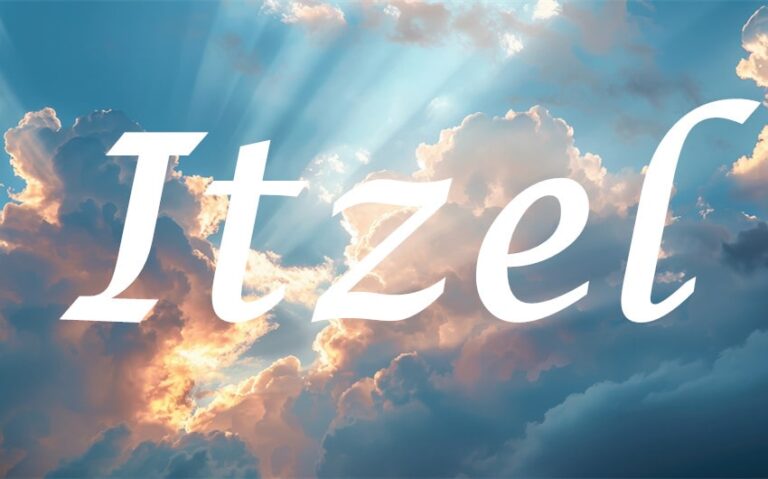Shrek Name Meaning and Origin: From Fear to Unexpected Humanity
The Shrek name meaning might surprise you. While most people think of Shrek as the friendly green ogre from the DreamWorks films, the word itself existed long before the animated character appeared on screen. It has real linguistic roots in both Yiddish and German, where it originally meant “fear” or “terror.” Yet, through time and storytelling, the name has taken on new emotional meaning — from something that once described fright to something that symbolizes humanity, humor, and self-acceptance. In this article, you’ll explore where the name Shrek came from, what it originally meant, and how its evolution mirrors the very lessons of the character who made it famous.
Origin and Linguistic Background of the Name Shrek
The name Shrek has its linguistic roots in both Yiddish and German, two languages that share a deep connection through history and etymology. In Yiddish, shrek (שרעק) means “fear” or “fright.” The same meaning appears in German as Schreck, also translating to “fright,” “shock,” or “terror.” Both derive from the older Germanic verb schrecken, meaning “to scare” or “to startle.”
This linguistic family of words emphasizes suddenness — the experience of being startled or frightened unexpectedly. For example, in German, the phrase “einen Schreck bekommen” means “to get a scare,” while in Yiddish, “a shrek hobn” means “to be frightened.” So from a purely linguistic point of view, Shrek is literally a name that means “fear” or “terror.”
The name was first used in literature by William Steig, a Jewish-American author and illustrator, in his 1990 children’s picture book “Shrek!” Steig, known for his witty and unconventional storytelling, likely chose the name as a humorous play on its Yiddish meaning. By giving his main character — a grotesque but good-natured ogre — a name that literally meant “fear,” he created an intentional irony.
Steig’s Shrek was a creature who inspired horror in everyone he met, yet his story was comic, absurd, and ultimately heartwarming. This choice of name cleverly subverted the word’s original meaning. The very act of turning Shrek — a word rooted in fear — into a story of acceptance and laughter was itself a linguistic and emotional transformation.
So even before DreamWorks turned Shrek into an animated legend, the name already carried this dual spirit: a word of fright repurposed to reveal warmth and irony. It represented the idea that something frightening at first glance could turn out to be unexpectedly kind.
Literal Meaning and Cultural Interpretation
Literally, Shrek means “fear”, “terror,” or “fright.” In its earliest linguistic context, it was not used as a name at all but rather as an emotion — the feeling of being startled or scared. However, through both literature and popular culture, the meaning of Shrek shifted dramatically.
In Yiddish, the phrase “a shrek hobn” (to take a fright) reflected an everyday emotion — not necessarily evil, but human. When William Steig borrowed this word, he transformed it from an expression of fear into a proper name. His playful choice flipped the emotional context: instead of something to be feared, Shrek became someone who felt, laughed, and learned.
Then, when DreamWorks adapted Steig’s story into the 2001 film Shrek, the name’s irony deepened. At the start of the film, Shrek the character lives up to his name — people see him and scream in terror. Yet the more you learn about him, the more the name turns on its head. The ogre who once symbolized “fear” becomes a representation of acceptance, love, and self-worth.
This evolution of meaning — from fear to affection — mirrors a universal human truth. We often fear what we don’t understand. But once understanding replaces judgment, what was once frightening becomes familiar, even lovable. Thus, the name Shrek captures this transformation perfectly.
It’s a powerful example of linguistic irony: a word that once meant “terror” now inspires warmth and laughter. In that sense, Shrek doesn’t just describe fear — it overcomes it.
Symbolism of the Name Shrek in Literature and Film
The story of Shrek is as much about names and identity as it is about fairytales and humor. In both Steig’s book and the DreamWorks films, the character’s name plays an essential symbolic role.
At the beginning of the story, Shrek lives alone in a swamp, shunned by society and defined entirely by how others perceive him. His name — meaning “fright” — perfectly matches his life. He’s seen as a monster, a source of fear and disgust. The villagers scream and run at the sight of him, and Shrek accepts this as his place in the world.
But as the narrative unfolds, the meaning of the name begins to change. Through friendship, love, and courage, Shrek redefines himself. The one who was feared becomes a hero, protector, and symbol of honesty. His name, once a mark of isolation, transforms into a badge of strength and individuality.
Symbolically, this journey mirrors a deep human theme: the transformation of perception. The story of Shrek reminds you that names — and people — are often misunderstood. The “monster” becomes the most human character of all. The word Shrek, once associated with fear, comes to represent self-acceptance, empathy, and humor.
From a cultural standpoint, this transformation reflects a broader moral: that identity is not fixed by labels or appearances. The word that once meant “fear” becomes a symbol of love, just as the ogre once feared becomes a friend.
The reversal of meaning gives the name profound symbolic weight. It teaches that what frightens you can sometimes hold the deepest wisdom, and that kindness can exist behind even the roughest exterior.
Related Words and Names
To understand Shrek fully, it helps to look at its related linguistic family — words and names that share the same origin or meaning.
-
Schreck (German) – The direct German equivalent of Shrek, meaning “fright” or “shock.” This is the original source word from which the Yiddish shrek was derived.
-
Schrecken (German verb) – Means “to scare” or “to startle.” This form expresses the action behind the noun “Schreck.”
-
Schrecklich (German adjective) – Means “terrible” or “frightful,” an adjective built from the same root word.
-
Shrek (Yiddish) – Identical to the German noun but used in everyday emotional language, often humorously: “Du host mir a shrek gemakht!” — “You gave me a scare!”
-
Steig (German surname) – The surname of Shrek’s original author, William Steig, meaning “path” or “ascent.” Symbolically, it ties beautifully to the story — the ascent from fear to understanding.
-
Ogre (French folklore) – Not linguistically related but conceptually connected. In folklore, an ogre is a terrifying creature that often conceals wisdom or humanity beneath a monstrous form.
Together, these words show how Shrek belongs to a larger linguistic network centered around emotion — especially fear and surprise. Yet, through reinterpretation, the name has transcended its literal root. It’s no longer just a word for fear, but a symbol of transformation, irony, and inner strength.







